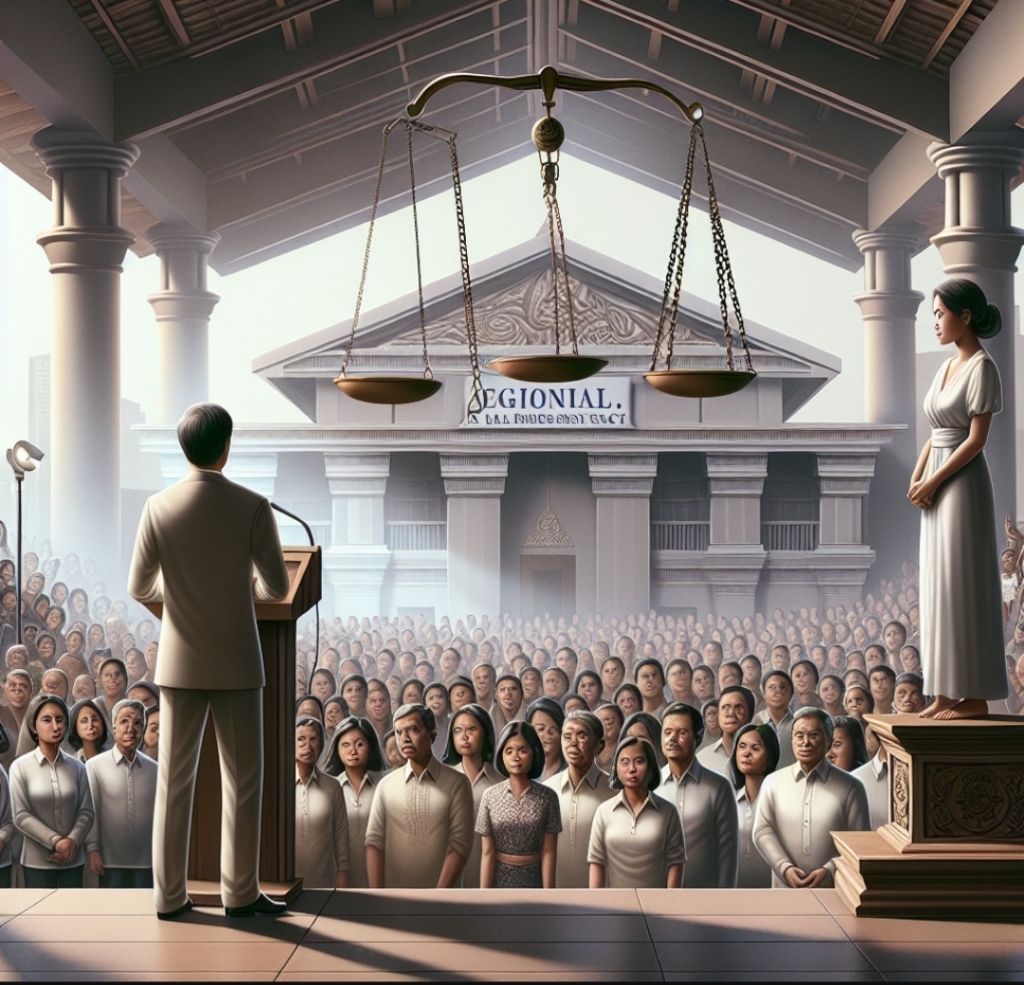By Louis ‘Barok‘ C. Biraogo
In the annals of Philippine justice, few moments have resonated as profoundly as the acquittal of former senator Leila de Lima. As the gavel fell in the Muntinlupa Regional Trial Court Branch 206, the air seemed to thicken with the gravity of the moment. Here was a decision that would reverberate far beyond the four walls of the courtroom—a testament to the enduring principles of fairness and efficiency that Justice Secretary Jesus Crispin Remulla extolled as cornerstones of the nation’s judicial system.
Secretary Remulla, with a resolve as unwavering as the justice he champions, stood before the media, his statement echoing with the weight of the moment: “This court ruling is proof of the country’s working justice system under the Bagong Pilipinas governance.” The nation held its breath, the implication clear—justice, though slow and often grueling, had been served. De Lima’s seven-year ordeal, marked by isolation and ignominy, had reached its denouement. But the questions lingered, simmering beneath the surface: At what cost? And what does this mean for the future?
As Remulla spoke of healing and constructive dialogue, one could almost hear the collective sigh of relief from de Lima’s family and supporters, who had endured the seemingly endless wait for vindication. The acquittal was not merely a legal victory; it was a striking reaffirmation for many who had begun to doubt the impartiality of the system. It was a declaration that, despite the shadowy waters of political intrigue and the shadows of power, the rule of law could still prevail.
Remulla’s words carried the weight of a man deeply committed to the ideals of justice. “The rule of law and the independence of the judiciary are fundamental principles that underpin democratic governance and the protection of human rights highly prioritized under the Bagong Pilipinas brand of governance,” he asserted. In this new era, under the watchful eye of the Marcos administration, the judiciary had shown its mettle.
The Muntinlupa RTC’s decision to grant de Lima’s demurrer to evidence, thus dismissing the final drug charge, was not just a legal technicality but a profound affirmation of her innocence. Judge Gener Gito’s ruling echoed through the corridors of justice, clearing not only de Lima but also her co-accused. It was a moment that underscored the judiciary’s role as a bulwark against wrongful persecution, a safeguard of individual rights against the tides of political expediency.
But as the dust settles, one must ponder the broader implications. De Lima’s acquittal is a litmus test for the nation’s justice system. It challenges us to reflect on the balance of power, the integrity of our institutions, and the resilience of our democracy. Secretary Remulla’s commendable stance is a clarion call to uphold these values, even in the face of formidable challenges.
In the heart of Manila, where the streets have seen both the cries of protest and the whispers of hope, de Lima’s acquittal stands as a landmark—an indelible mark on the landscape of Philippine justice. It is a reminder that, even in the darkest of times, the light of fairness and truth can shine through, guided by leaders like Remulla who champion these principles with unwavering dedication.
As we move forward, the echoes of this moment will continue to resonate. The acquittal of Leila de Lima is more than a legal victory; it is a narrative of resilience, a testament to the enduring power of justice, and a call to vigilance for all who cherish the rule of law. In this suspenseful chapter of Philippine history, one truth stands clear: the pursuit of justice, though fraught with peril, is a journey worth taking.

- From Diverticulitis to Detention: How a Fake CT Scan Landed Critics in the NBI Crosshairs

- Marcos’ “Teachers First” Mirage: ₱10,000 Allowance or Just Another Vote-Buying Photo-Op?

- Dizon’s Maharlika Highway Exclusive Club: Only Billion-Peso Boys Allowed (Small Contractors Need Not Apply)

- 2028 Elections Just Got Bloodier: Sara Declares War on Marcos While Impeachment Complaints Line Up Like Jeepneys in EDSA

- From Barangay Captain to Cabinet: Why 73% of Filipinos Think Bribery Is the Only Government Service That Actually Works

- Why Duterte Got the Fast-Track to The Hague but Bato & Bong Go Deserve a Full Constitutional Pageant

- Marcoleta’s Treason Fantasy: Why Charging Carpio for Peacetime “Betrayal” Is the Dumbest Thing You’ll Read This Week

- DOJ Caught Shielding Alleged Rapist Because He’s Their Sabungeros Golden Boy? The Ugly Truth Exposed









Leave a comment